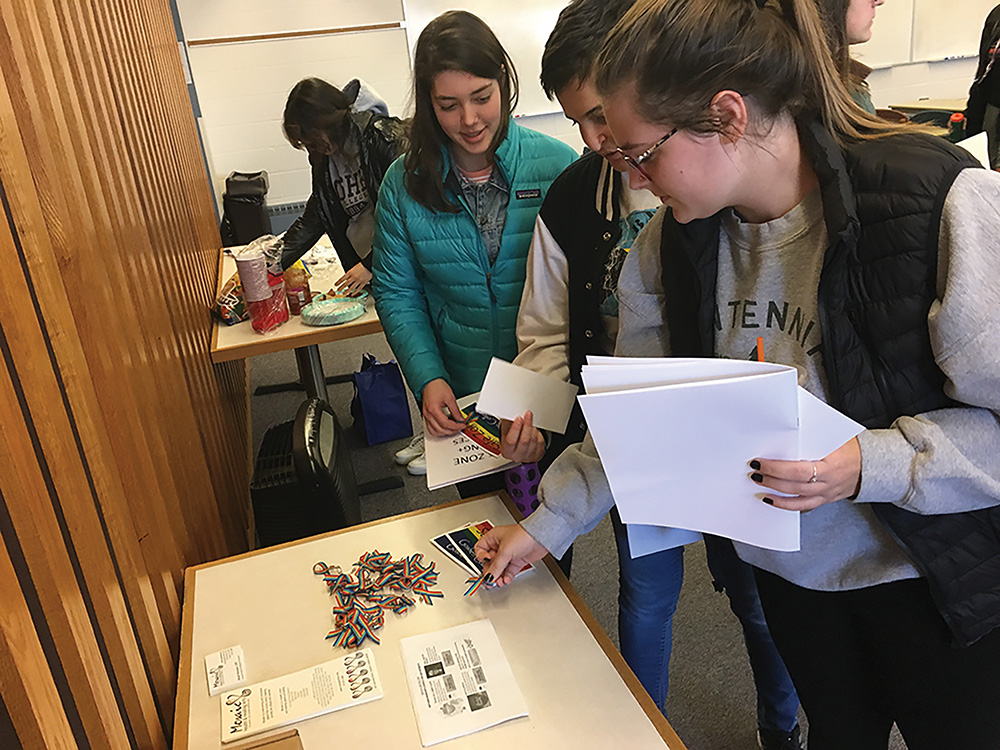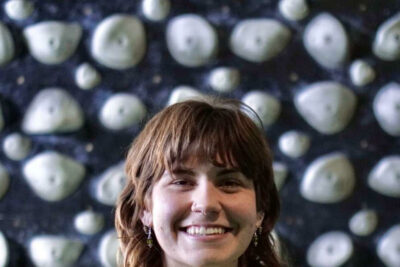A group of around 20 students gathered for a Safe Zone training sponsored by Advocates, a campus club that works to increase education around and awareness of LGBT+ concerns.
The event took place on Saturday, Jan. 20 and was led by Eli Studebaker, Christi Sessa, Annie Steiner, Emma Henderson, Brenner Burkholder, and Emily Bennett, all student leaders of Advocates.Participants in the Safe Zone training, a discussion based training on LGBT+ allyship and inclusion were given a packet put together by the Brethren and Mennonite Council for LGBT+ interests addressing privilege, coming out and creating safe spaces.
After everyone in the room introduced themselves by naming which pronouns they use, participants split up into small groups to discuss common myths and facts.
In the following Impact of Silence activity, everyone was asked to write down on a piece of paper their job or what they do, the three most important people in their life, the three most important events in their life and three things they enjoy doing in their free time. Participants were then asked to split up into pairs and spend two minutes talking to their partner without mentioning anything they had written.
Elsie Koop-Liechty, a first-year, who attended the training, said, “The biggest thing I got out of this exercise is that there are environments where some people don’t feel comfortable or aren’t allowed to share important things about their life and that makes many social situations even more difficult.”
Near the end of the training, participants were shown a list of resources in the back of their packet. Resources included:
PRISM, an on campus support group for LGBT+ (prism@goshen.edu)
Brethren Mennonite Council (http://www.bmclgbt.org/)
The Trevor Project, a suicide prevention helpline for LGBT+ youth (www.thetrevorproject.org)
Mosiac Inc., a community support group in Goshen (http://mosaichha.org/) and others.
Second year Annie Steiner, was encouraged by the number of students who showed up to the Safe Zone training.
“I would hope that people are starting to think more about the different aspects that you wouldn’t think about if you’re not queer,” she said. “Especially since for some reason there seems to be an assumption that people who are queer are the ones who want to educate and it can be really exhausting. I’m sure that other minorities have that same sort of problem.”
Advocate leader Eli Studebaker wants the Goshen College community to recognize that just because gay marriage has been legalized and the hiring policies at Goshen have been changed to be more inclusive doesn’t mean that Goshen College or the world at large is safe for him and others in the LGBT+ community.
“Using people’s pronouns, not making homophobic comments about people or in general, if you think nobody in the room is LGBT+ and if you think that nobody who is going to be affected by your comments is listening, you really need to reevaluate how you’re thinking about your words and what you say and homophobia,” he said. “Because there probably is someone in the room who it affects.”
Rainbow ribbon pins and signs reading “Safe Zone” were open for participants to take as they left the training.
Evan Krabill, a first-year, took both a pin and a sticker, and placed the sticker on the door of his dorm room.
“I hope that individuals that see my sticker or pin know that I am an advocate, and, although I am nowhere near perfect, I am a person that they can talk to,” he said. “However, if they do not approach me, I hope they are comforted in knowing that people on campus care.”

